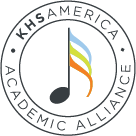In the past, I have written about the necessity of us making the use of the word “listen” actionable. Simply instructing a group to “listen” is of little help. Telling them what to listen for is arguably far more enlightening and illuminating. Likewise, our use of the word “again” or the phrase “do it again” suffers from the same problem. Instructing a group of students to do a passage again offers them little help as to why they are doing it again. Obviously, the conductor knows why, but the students often don’t. However, saying, “Let’s do that again and this time could we have less of the melody and more of the countermelody.” Or, “One more time, but I’d like the trumpets and flutes to listen to each other since you are playing the same thing an octave apart.” Or, “Percussion, please listen to the accents the low brass are playing and see if you can match their intensity.” Making our instructions as actionable as possible will pay dividends that will undoubtedly foster more productive rehearsals. They can’t help but do so!
Peter Loel Boonshaft, Director of Education
KHS America
The content of this Blog article or Banded Story is the intellectual property of the author(s) and cannot be duplicated without the permission of KHS America and/or the author(s). Standard copyright rules apply.





 We look forward to the evolution of this exciting program, and welcome feedback on how we can further enhance the work that you do in music education.
We are excited to offer your program the opportunity to join the KHS America Academic Alliance today.
We look forward to the evolution of this exciting program, and welcome feedback on how we can further enhance the work that you do in music education.
We are excited to offer your program the opportunity to join the KHS America Academic Alliance today.